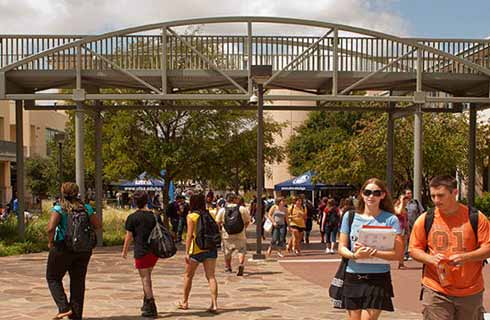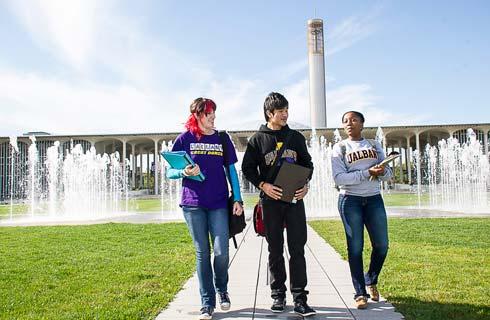社会学学士(荣誉)学位
BA (Hons) Sociology

学历文凭
Bachelor Degree with Honours

专业院系
School of Applied Social Sciences

开学时间

课程时长

课程学费

国际学生入学条件
IDP—雅思考试联合主办方

雅思考试总分
6.5
- 雅思总分:6.5
- 托福网考总分:80
- 托福笔试总分:
- 其他语言考试:Pearson Academic PTE - 62 (with no less than 59 in each Communicative Skill) Cambridge C2 Proficiency or C1 Advanced - 176 with a minimum of 169 per component
CRICOS代码: L300
申请截止日期: 请与IDP联系 以获取详细信息。
课程简介
Whether you're interested in understanding individual behaviour or large-scale social change, as a student of Sociology you'll learn how society is structured and develops through critical engagement with the major social and political issues of our time. Sociology aims to understand the relationships between individual people and the wider cultural and institutional contexts within which they live. It is concerned with the nature of what we refer to as "society", how it shapes the way in which we live and, in turn, how it is shaped by our individual and collective action. As a student of Sociology, you will join a dynamic learning and research community, which includes internationally recognised experts actively involved in collaborative projects focused on local, national and international issues. We are defined by our curiosity about the issues that impact the world around us and our drive to use our work to bring about positive social change. Drawing on this expertise, this course explores key social issues that affect our everyday lives including education, employment, health, criminality, race and digital technologies. Alongside these kinds of topics, you will learn about historical and contemporary concepts that define sociological thought and place them within their social and political contexts. You will also learn how to design and carry out sociological research through research projects carried out in the second and final year of study. We offer the option to undertake a placement with a local community organisation to deploy your knowledge in an applied setting. This course explores key social issues that affect our everyday lives including education, employment, health, criminality, race and digital technologies.Course structureYear 1 modulesCore modules:Classical Sociological Theory will introduce you to key sociological concepts and ideas that form the basis of a sociological perspective for understanding the world. Starting with classical sociological work from the 19th and early 20th centuries, the module demonstrates how sociological ideas have developed over time through refinement, evaluation and critique.Social Research Methods examines the concept of social research and practice-based inquiry. You will learn how to produce and analyse different kinds of data and develop some basic practical skills in designing and carrying out social research yourself.Societies in Transition offers a formative examination of modern societies and aspects of contemporary social life. It provides the tools to reflect upon the dynamic nature of societies, including the bases for social transformation and change.Critical Scholarship in the Social Sciences supports the transition to university-level study by helping you develop the foundational academic skills that are needed throughout your degree. Through it you will learn key academic conventions and skills, for example: reading and evaluation; writing and argument; presentation and discussion; and so on.Year 2 modulesCore modules:Modern and Contemporary Sociological Theory engages with contemporary theoretical perspectives and issues in the field of sociology. In doing so, you will learn to develop evaluations and critiques of sociological thought grounded in both conceptual discussion and empirical observation.Research Methods in Action supports your development of applied research skills. At the core of the module is a group-based research project you design and carry out on a topic of your choosing. In addition, you will learn a range of methods and techniques for analysing both quantitative (statistics) and qualitative (textual verbal visual) data.Optional modules:In recent years, optional modules have included: Communities and Social JusticeContemporary Criminological TheoryCrime, Power and Social InequalitiesPolicing and PoliceSelf, Identity and SocietySociology of EducationSociology of Health and MedicineViolence and Abuse in Society.
相关申请
 预科
预科 奖学金
奖学金 实习机会
实习机会 在校学习
在校学习 跨境学习
跨境学习 校园授课-线上开始
校园授课-线上开始 在线/远程学习
在线/远程学习
开学时间&学费
学费信息仅供参考,请与IDP联系以获取详细信息
| 开学时间 | 时长 | 学费 | 地点 |
|---|
学校排名

世界排名114
数据源:
泰晤士高等教育世界大学排名
关于杜伦大学

杜伦大学创建于1832年,是英国历史最悠久的大学之一。杜伦大学建于中世纪世界遗产地旁,有着悠久的历史和现代价值观,是一座备受推崇并拥有前瞻性思维的学府。如今,来自世界各地的18000多名学生在达勒姆就读。杜伦大学有28个系,开设有200多门本科和研究生课程。该校很多教师都处于各自领域的最前沿。教职人员利用出色的研究和学科知识为所有学生提供优质的教学。目前,杜伦大学有17个学科在全球大学中名列前100位,其中九个学科名列前50位。除了在学术上的卓越成就,该校还努力为学生提供支持,帮助他们在毕业后获得有意义的工作。其毕业生就业能力目前在世界上排名第88位。该校的就业与创业中心致力于培养学生的专业技能,并提供商业人脉和工作机会。杜伦大学目前在2020年《QS世界大学排名》中名列第78位,稳稳跻身全球大学百强之列。该校为教职人员和学生创造了一个热情友好的多元化社交环境,并因此而倍感自豪。目前,杜伦大学28%的在校生为非英国本土学生。大学社区处在独一无二的达勒姆求学体验的核心位置,达勒姆的每个社区均是多元化、多学科的社区,由来自不同背景和文化的学者、学生和工作人员组成。有了这些社区,加上该校杰出的支持体系,学生们一定会有宾至如归之感,并可参与大量精彩的课题。
本校相关课程

博士神学与宗教
学历文凭
Ph.D.
开学日期
课程费用总额


MLitt神学与宗教
学历文凭
Masters Degree (Taught)
开学日期
课程费用总额


博士学位论文博士学位
学历文凭
Ph.D.
开学日期
课程费用总额


理学硕士心理学研究
学历文凭
Masters Degree (Research)
开学日期
课程费用总额


研究心理学硕士
学历文凭
Masters Degree (Research)
开学日期
课程费用总额


博士哲学
学历文凭
Ph.D.
开学日期
课程费用总额

其他相关课程

国家土著研究中心哲学博士
 澳大利亚国立大学
澳大利亚国立大学学历文凭
Ph.D.
开学日期
课程费用总额


芬纳环境与社会学院哲学硕士
 澳大利亚国立大学
澳大利亚国立大学学历文凭
Masters Degree (Research)
开学日期
课程费用总额


社会科学学士(荣誉学位)
 纽卡斯尔大学
纽卡斯尔大学学历文凭
Bachelor Degree with Honours
开学日期
课程费用总额


哲学博士(人文,艺术和社会科学)
 斯威本科技大学
斯威本科技大学泰晤士高等教育世界大学排名:282
学历文凭
Ph.D.
开学日期
课程费用总额


国际发展研究生文凭
 乐卓博大学
乐卓博大学泰晤士高等教育世界大学排名:267
学历文凭
Graduate Diploma
开学日期
课程费用总额


土著哲学博士
 南十字星大学
南十字星大学泰晤士高等教育世界大学排名:456
学历文凭
Ph.D.
开学日期
课程费用总额










 英国
英国